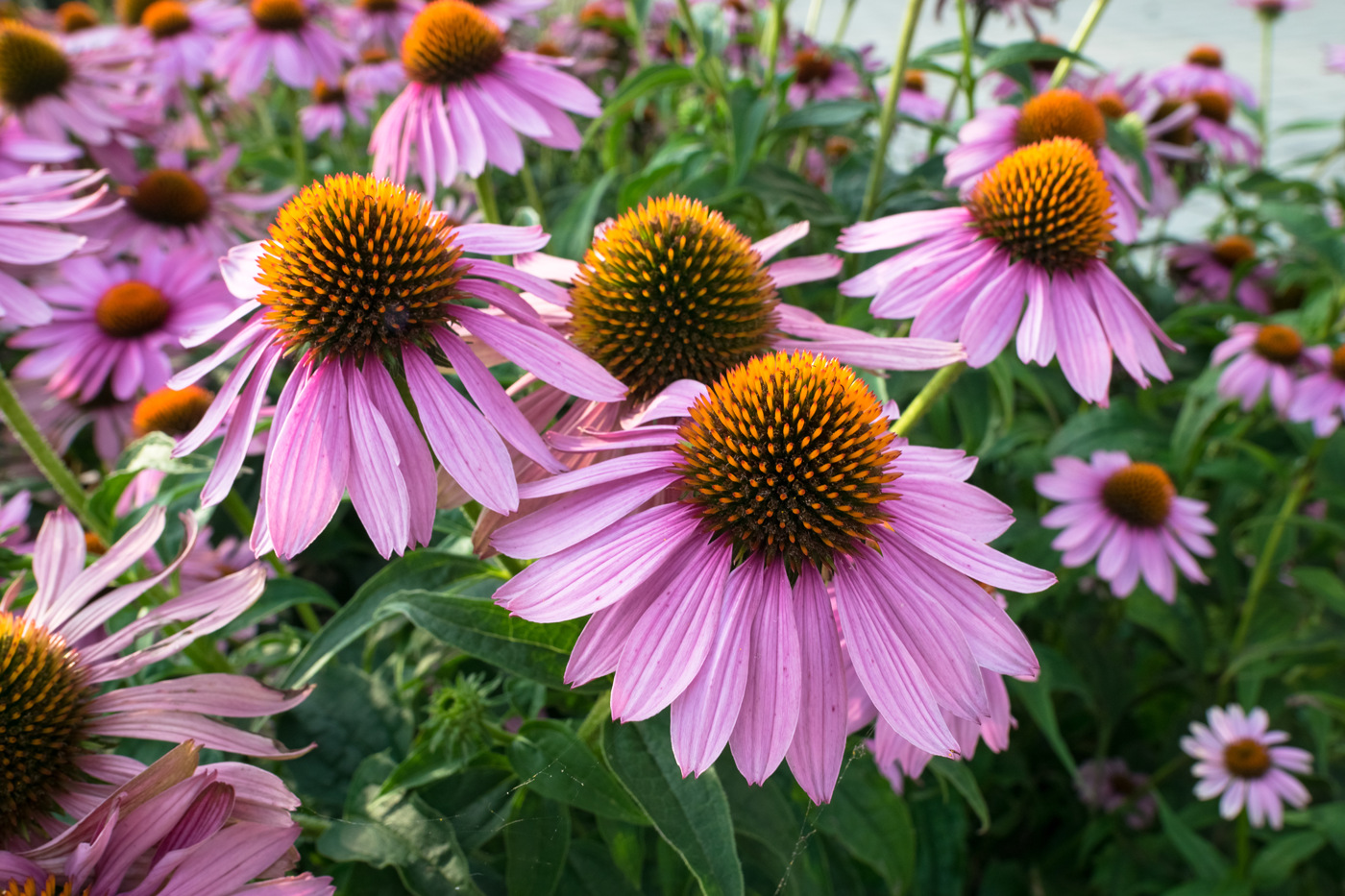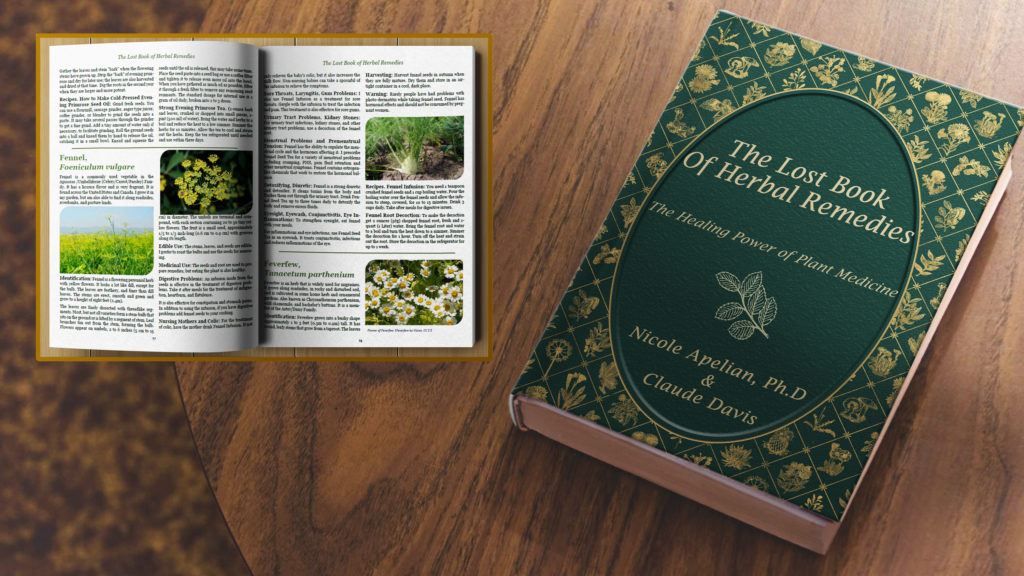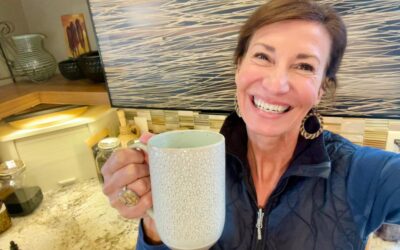If you suffer from an autoimmune disorder, it’s important to tread carefully when using herbs like echinacea, goldenseal, and astragalus.
Immunostimulatory herbal supplements such as these can worsen your condition on several levels. Echinacea in particular has been shown to increase tumor necrosis factor (TNF), which plays a role in autoimmune conditions like rheumatoid arthritis, Crohn’s disease, and multiple sclerosis through proinflammatory cytokine activity4.
In other words, if your immune system is dysregulated these herbs can increase autoimmune flares linked with inflammation.
Several case studies have demonstrated the negative effects of echinacea on autoimmune disorders. One patient with severe systemic lupus and inflammation of the kidney found that when she took echinacea during a lupus flare, her symptoms became much worse. After discontinuing the herb, her symptoms would subside. The cycle repeated on several occasions.
Similarly, a patient with ulcerative colitis also had an adverse reaction to echinacea. Within twenty-four hours of taking the herb she had a severe bout of bloody diarrhea. The researcher concludes:
“Echinacea is known to increase phagocytosis (and thus antigen presentation to the T cells) and it rapidly (within 24 hours) increases lymphocyte counts. Each of these may be related with an acute autoimmune attack”1.
Another example concerns a woman with Sjögren’s syndrome. The researchers reviewing her case believe the immune stimulating properties of echinacea activated her autoimmune disease and “resulted in serious metabolic disturbances” as well as severe muscle weakness2.
Adaptogens as an alternative
Safer options for autoimmune conditions are a class of herbs called adaptogens. These herbs support and balance the immune system without overstimulating it. They also help the body to adapt and regulate, which improves resistance to mental, physical, and environmental stress. Here are a few to consider:
Reishi Mushroom (Ganoderma lucidum)
Not only does reishi help to counteract the negative effects of stress, it also addresses inflammation, low energy, and hormonal imbalances. Reishi has been shown to exert neuroprotective effects as well.
Warning: While generally safe, it is possible to ingest too much. Only use reishi from a reputable source or consult with an expert. Avoid before surgery as it is a vasodilator.
Lion’s Mane Mushroom (Hericium erinaceus)
As a powerful anti-inflammatory and antioxidant, Lion’s mane assists in the management of autoimmune diseases. Moreover, Lion’s mane helps to ease the symptoms of stress and anxiety, including heart palpitations, irritation, and lack of concentration. Importantly, it also stimulates Nerve Growth Factor (NGF), which is crucial for repairing the myelin sheath of nerve cells.
Warning: As some people are allergic to mushrooms, watch for reactions. Consult your doctor immediately if you experience difficulty breathing, burning, itching, or swollen lips which may indicate anaphylactic shock.
Ashwagandha (Withania somnifera)
An adaptogenic herb that has been used for thousands of years, ashwagandha is held in high regard for its ability to support adrenal function and heal adrenal fatigue. It also strengthens the immune system, calms anxiety and inflammation, eases depression, and balances hormone levels. Additionally, ashwagandha protects the brain from the negative consequences of emotional, physical, and chemical stress.
Warning: Ashwagandha is generally regarded as safe and has a long history of use. As there are no studies on the safety of long-term use, watch for side-effects and consult your doctor if you use the herb over an extended period of time.
American Ginseng (Panax quinquefolius)
Boosting energy and stamina while reducing fatigue, American ginseng is an excellent herb for normalizing our stress response. It’s also an outstanding tonic for adrenal fatigue, which is often found in those who have autoimmune conditions.
Warning: American ginseng should not be used if you have rheumatoid arthritis, gout, or kidney disorders. Pregnant or nursing mothers should avoid the use of ginseng. Do not use if you have a hormone-related condition such as fibroids, endometriosis, or cancers of the breast, ovaries, uterus, or prostate. Avoid using ginseng if you have heart disease.
Nicole Apelian
Sources
- Paul Bergner. “Cautions with echinacea in autoimmune disease?” Medical Herbalism: A Journal for the Herbal Practitioner. http://medherb.com/92ECHAUT.HTM
- Logan, J L, and J Ahmed. “Critical hypokalemic renal tubular acidosis due to Sjögren’s syndrome: association with the purported immune stimulant echinacea.” Clinical rheumatology vol. 22,2 (2003): 158-9. doi:10.1007/s10067-002-0671-4. https://pubmed.ncbi.nlm.nih.gov/12740687/
- Nicole Apelian, Ph.D, Claude Davis. “The Lost Book of Herbal Remedies”. https://www.thelostremedies.com/nicole-apelian/
- Masli, Sharmila, and Bruce Turpie. “Anti-inflammatory effects of tumour necrosis factor (TNF)-alpha are mediated via TNF-R2 (p75) in tolerogenic transforming growth factor-beta-treated antigen-presenting cells.” Immunology vol. 127,1 (2009): 62-72. doi:10.1111/j.1365-2567.2008.02933.x. https://www.ncbi.nlm.nih.gov/pmc/articles/PMC2678182/
Roll Up Your Sleeves and Do it Yourself?
Are you interested in making your own herbal remedies at home and learning about the many plants, lichens, and mushrooms you can find out your own back door? If so please pick up a copy of my book: "The Lost Book Of Herbal Remedies: The Healing Power of Plant Medicine" today!
Not in Europe or the US? Not a problem, click here to order your copy »





